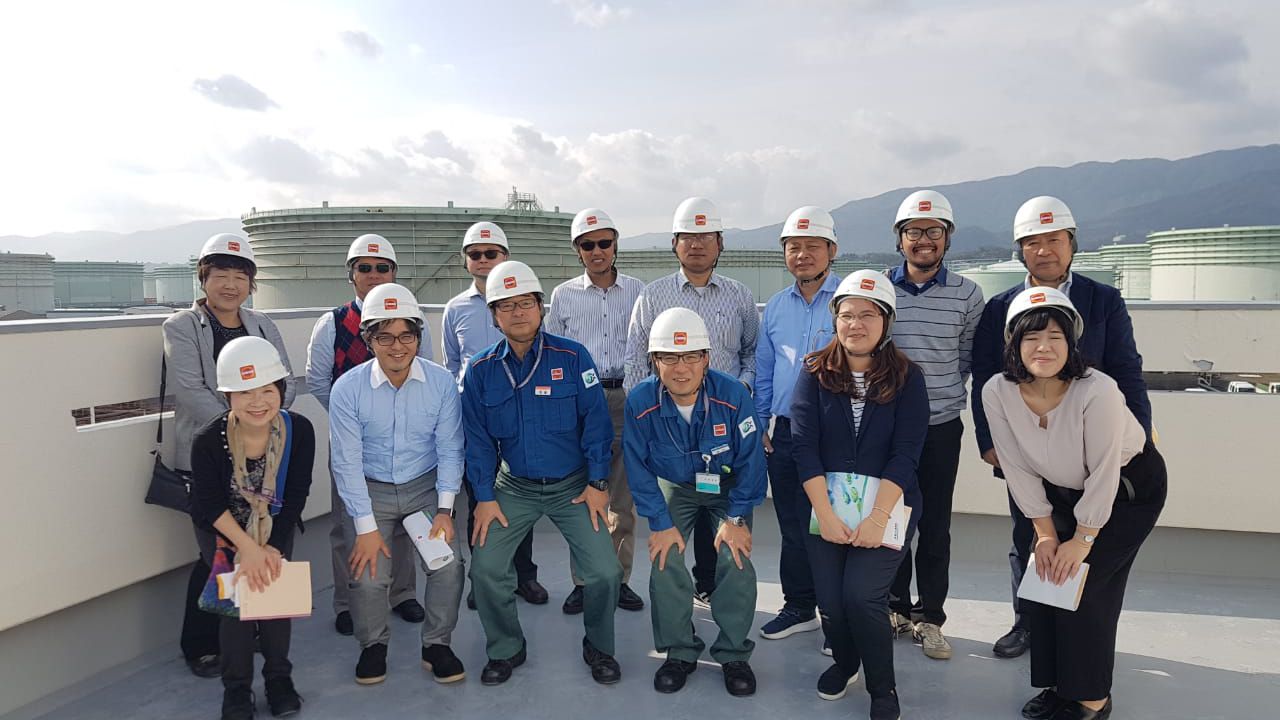Menu

As mentioned in the 5th ASEAN Energy Outlook launched by ACE last year, oil remains important for ASEAN, with 33% share in total primary energy supply in 2015. Between 2015 and 2040, oil still dominates around 40% of fuel consumption share in ASEAN. As ASEAN oil reserves and production are declining, ASEAN will continue as a net oil importer and will require additional capacity of refinery and storage.

Due to its dependency on oil imports, ASEAN is vulnerable to the supply disruption and oil price fluctuation. To support ASEAN’s readiness for those potential risks, ACE and Japan Oil Gas and Metal Corporation (JOGMEC) organised the Oil Capacity Building on Energy Security which was held on 3-6 December 2018. This activity consists of two-day lectures in Tokyo by ACE, International Energy Agency (IEA), ASEAN Council on Petroleum (ASCOPE), Petroleum Association of Japan (PAJ) and JOGMEC and two-day visit to Kushikino National Oil Stockpiling Base and Kiire Oil Terminal in Kagoshima. Director Generals in oil from 5 ASEAN Member States (AMS)–Cambodia, Lao PDR, Malaysia, Myanmar, and Thailand—participated in the activity.
Japan are heavily dependent on oil and 100% of their oil are imported. In 1973, Japan was impacted badly due to the supply disruption in the oil crisis. Japan’s economy was crumbled, and people had to form an extremely long queue for buying fuels and toilet papers. Japan has learned from that experience, especially since the country is also prone to natural disasters such as earthquake, tsunami, typhon, and volcanic eruption. In 1975, Japan enacted the Oil Stockpiling Act and since then has been committed to stock their oil supply for emergency. Currently, Japan already has 10 oil stockpiling bases and has a total of 224 days of oil stockpile, which is ready to be released in case of emergency such as during Great East Japan earthquake and tsunami in 2011.

The Director Generals mentioned that the oil stockpiling will have an important role in enhancing ASEAN energy security. During the lecture, ASCOPE also mentioned the importance of regional cooperation through ASEAN Petroleum Security Agreement (APSA). APSA is an agreement between AMS to enhance the energy security within the region. This agreement would help the region fill up the supply gap across the AMS by regionally sharing the oil when the supply is disrupted.
This activity aims to support the Oil Stockpiling Roadmap (OSRM). In 2010, ACE and JOGMEC, as the co-secretariat of of OSRM Working Group, developed a study on OSRM for ASEAN+3 (China, Japan, Korea) countries. Next year, ACE and JOGMEC will update the development of ASEAN+3 OSRM. (RAP)
